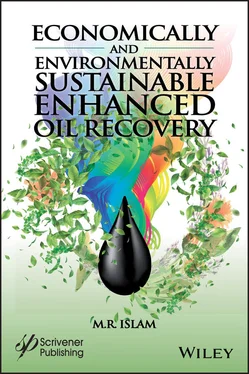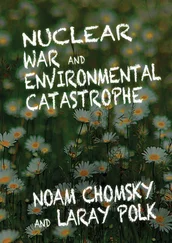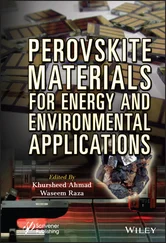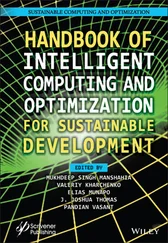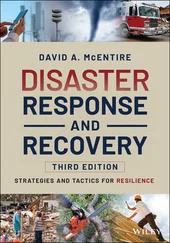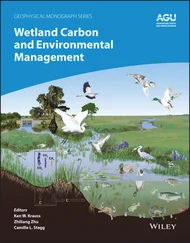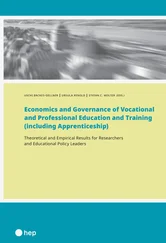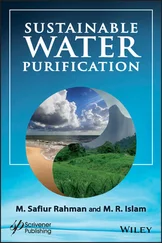The President is also right to cast a suspicious eye on the Green Climate Fund, established under the Paris Accords to “mitigate” the damage that excess GHG production might cause to the undeveloped world. However, this moral posturing ignores the powerful point that undeveloped countries have already benefited vastly from Western technology, including carbon-based energy, and market institutions that, as the Cato Institute’s Johan Norberg (2017) reminds us in his book, have done so much to ameliorate chronic starvation and poverty across the globe. Missing from this analysis is the scientific explanation of how every dollar received by the developed countries actually end up working against that country and contribute to their continued dependence on the west (Zatzman and Islam, 2007). Contrary to all popular arguments, Carbon dioxide that has caused havoc to the atmosphere is not something that can be ‘cured’ with Green Climate fund and all solutions that are proposed to remedy the environmental insult are actually more toxic to the environment than the original offense (Islam et al ., 2012). and the political risk of the Green Climate Fund lies in its false characterization of advanced Western nations as despoilers of less developed countries.
The economic analysis that is often ‘sold’ as the only solution by the scientific community is also misleading. These studies show dramatic declines in jobs and production—that will result in astonishing economic losses for the United States—if the policies embodied in the Paris Accords are fully implemented. These numbers are simply too large to be credible, given the adaptive capacity of the American industrial sector. Contrary to what Trump says, U.S. production will not see “paper down 12 percent; cement down 23 percent; iron and steel down 38 percent; coal . . . down 86 percent; natural gas down 31 percent.” As the Wall Street Journal (WSJ, 2017) has noted, the level of carbon efficiency in the United States has improved vastly in the last decade because of innovations that predate the Paris Accords.
That trend will continue. Traditional forms of pollution generate two forms of loss, which are addressed by current laws. First, nothing about the Trump decision exempts domestic US polluters from federal and state environmental laws and lawsuits that target their behavior. It is precisely because these laws are enforced that coal, especially dirty coal, has lost ground to other energy sources. Second, pollution is itself inefficient, for it means that the offending firms have not effectively utilized their production inputs. These two drivers toward cleaner air and water—one external, one internal—explain why American technological innovation will continue unabated after Paris as long as true sustainability is understood and implemented.
If such actions of Trump were aimed at gaining praise from his detractors, it has not worked, and the lines that the US “will continue to be the cleanest and most environmentally friendly country on Earth” have fallen on deaf ears as his critiques continue to vilify him. As pointed out by Epstein (2017), one comical irony about the current debate is that the New York Times seems to have conveniently forgotten that carbon dioxide is colorless, odorless, and tasteless. Why else would it print two pictures— one of a dirty German power plant and the other of a dirty Mongolian steel plant—to explain why other “defiant” nations will not follow the US now that it has withdrawn from Paris. It is likely that the New York Times would find far fewer plants in the US that dirty. Indeed, one tragedy of Paris is that the nations adhering to it will invest more in controlling GHGs than in controlling more harmful forms of pollution that developed nations have inflicted on themselves.
One of the advantages of getting out of Paris is that it removes any systematic pressure for American firms to “hop on the wind and solar band-wagons”. Those firms that urged Trump to subsidize this market are free to enter it themselves, without dragooning skeptical firms and investors into the fold. During the entire Obama era, these companies have received subsidies and much research support while conducting no research to even study the true sustainability of these schemes. Chhetri and Islam’s (2008) analysis shows that none of them are sustainable and are far more toxic to the overall environmental integrity. Withdrawal also cuts down on the risk that environmental lawyers turn the Paris Accords into a source of domestic obligations even though it supposedly creates no international obligations.
It is easily provable that withdrawal from the treaty will do nothing to hurt the environment, and may do something to help it. With or without the hysteria, the earth has been through far more violent shocks than any promised by changes in carbon dioxide levels. This is not to say that petroleum production is inherently toxic or that it cannot be rendered sustainable. Islam et al . (2012) have shown rendering petroleum sustainable is much easier than rendering wind or solar energy sustainable. It is important to keep priorities straight when the U.S. and other nations around the world face major challenges on matters of economic prosperity and international security. Withdrawing from the Paris accord will allow the United States to focus its attention on more pressing matters, such as finding real solutions to sustainability problems.
The crisis was scientifically fomented through the advancement of so-called Peak Oil theory that became the driver of many other theories with great impact on economic polices. Peak oil is one of the concept that promotes the notion that global oil reserve is limited and at some point will start to run out, leading to sharp rise in oil price (Speight and Islam, 2016). These fears are based on premises that are not scientific.
2.5.1 Are Natural Resources Finite and Human Needs Infinite?
In economics, the notion of there being infinite need and finite resources is a fundamental premise that is asserted with dogmatic fervor in contemporary economics. In the context of petroleum resources, this notion has to help foment fear that is actually the driver of contemporary economics. This model starts off with the premise that needs must grow continually in order for the economy to thrive. Then, it implies, without looking at the validity of that premise, that there has to be an endless supply of energy to feed it. Because such endless supply contradicts the other premise that natural sources are finite, there arises an inherent contradiction. One such article is written by Mason (2017), who poses this wrong-headed question:
“But what happens to that equation when the net amount of energy we extract from the earth is shrinking? How, then, does an economy grow exponentially forever if the one element it needs more than anything to flourish is contracting with time?”
Then, he primes the audience with the need of a paradigm shift, that would involve challenging all orthodoxies involving the economy, as if to propose a revolution. Next, he creates a prophet out of a neuroscientist, Chris Martenson, who in recent years has turned his attention to the economy, particularly as it relates to dwindling energy resources and growing debt. Note how the premise of ‘dwindling energy resources’ is imbedded in this ‘revolutionary’ concept. How revolutionary is it? He writes:
“He also got rid of most any equity stocks and put his money in gold and silver. He has been labelled a prophet of doom and a survivalist, by some. But more recently, his views have been receiving wider and more serious attention. He has been to Canada to talk to oil and gas investors, of all people. That’s incongruous given his view that we’re pillaging the Earth of its energy resources in the most inefficient and wasteful ways possible.”
Читать дальше
